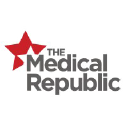The New South Wales (NSW) government has implemented reforms that empower general practitioners (GPs) to diagnose and prescribe treatment for Attention Deficit Hyperactivity Disorder (ADHD). This shift aims to address the longstanding issue of underdiagnosis in the region.
Under the new regulations, GPs can now provide ongoing prescriptions for stable doses of ADHD medication to both children and adults without needing a formal arrangement with specialists. This change is particularly significant given the financial and logistical barriers many patients face when trying to access specialist care.
Premier Chris Minns emphasized the importance of these reforms by stating that the training of more GPs to treat ADHD aims to reduce the lengthy wait times that have historically plagued patients seeking diagnosis. “By safely training more GPs to treat and diagnose ADHD, we hope to break the cycle of people waiting years for what can be a life-altering diagnosis,” he said.
The initial rollout of these reforms will focus on children, with the first group of trained GPs expected to be ready to prescribe by early 2026. The staged approach reflects the urgency of improving access to treatment, particularly in rural and regional areas.
Professor Adam Guastella of the Medical Republic commented on the need for these changes, stating, “It’s about ensuring that those who need it can get the diagnosis and support, whether they live in urban, rural, or remote areas.”
The Australasian ADHD Professionals Association (AADPA) has expressed support for these reforms, noting that they will improve access to care, reduce waiting times, and lower costs. However, the AADPA has also called for a national standard for ADHD assessment, diagnosis, and care to ensure consistency across the board.
Concerns have been raised about the potential for overdiagnosis, but GPs argue that ADHD has been historically under-recognized. Dr. Max Mollenkopf, deputy chair of the NSW Royal Australian College of General Practitioners (RACGP), remarked that the surge in ADHD content on social media platforms reflects a growing public understanding of the condition rather than an increase in actual diagnoses. He stated, “The idea of over-diagnosis ignores the under-recognition that has been going on for a very long time.”
According to estimates, the prevalence of ADHD ranges from 5% to 8% in the general population. GPs are well-equipped to diagnose various neurodivergent conditions, as they regularly encounter these patients in their practices. The reforms aim to alleviate pressure on the existing public health systems while ensuring that those with more complex cases receive the necessary support from multidisciplinary teams.
Overall, these changes represent a significant step toward improving ADHD diagnosis and treatment in NSW, making it easier for individuals to access the care they need in a timely manner.



